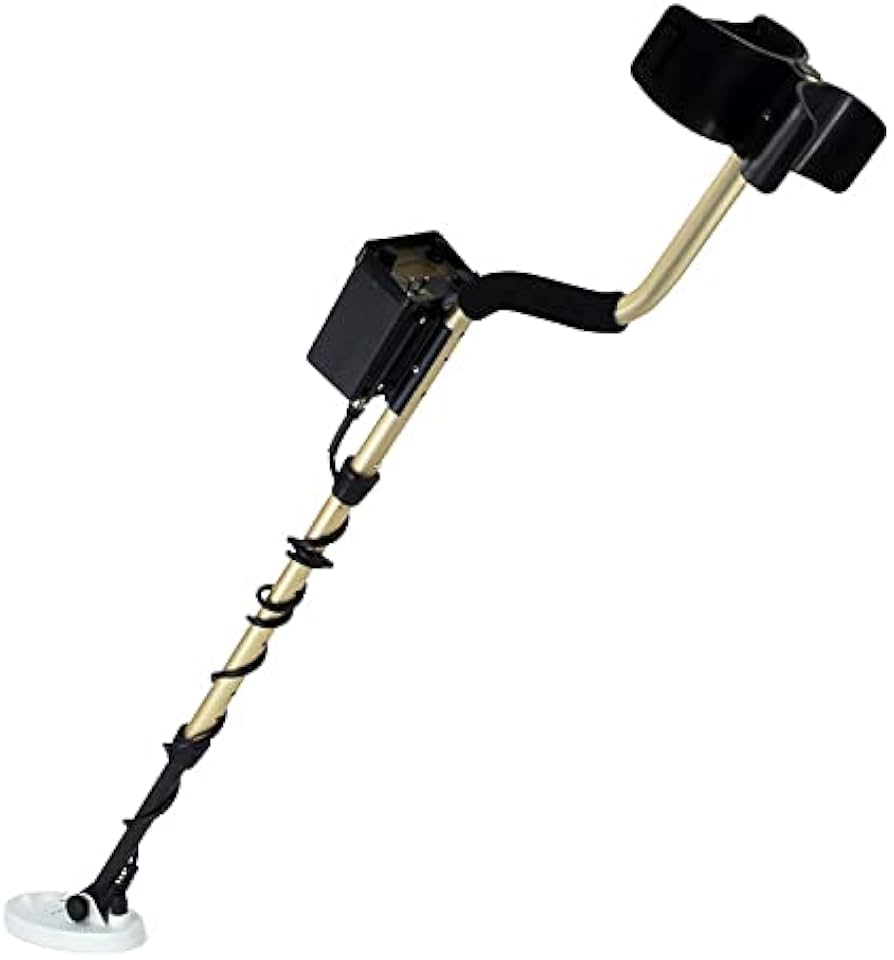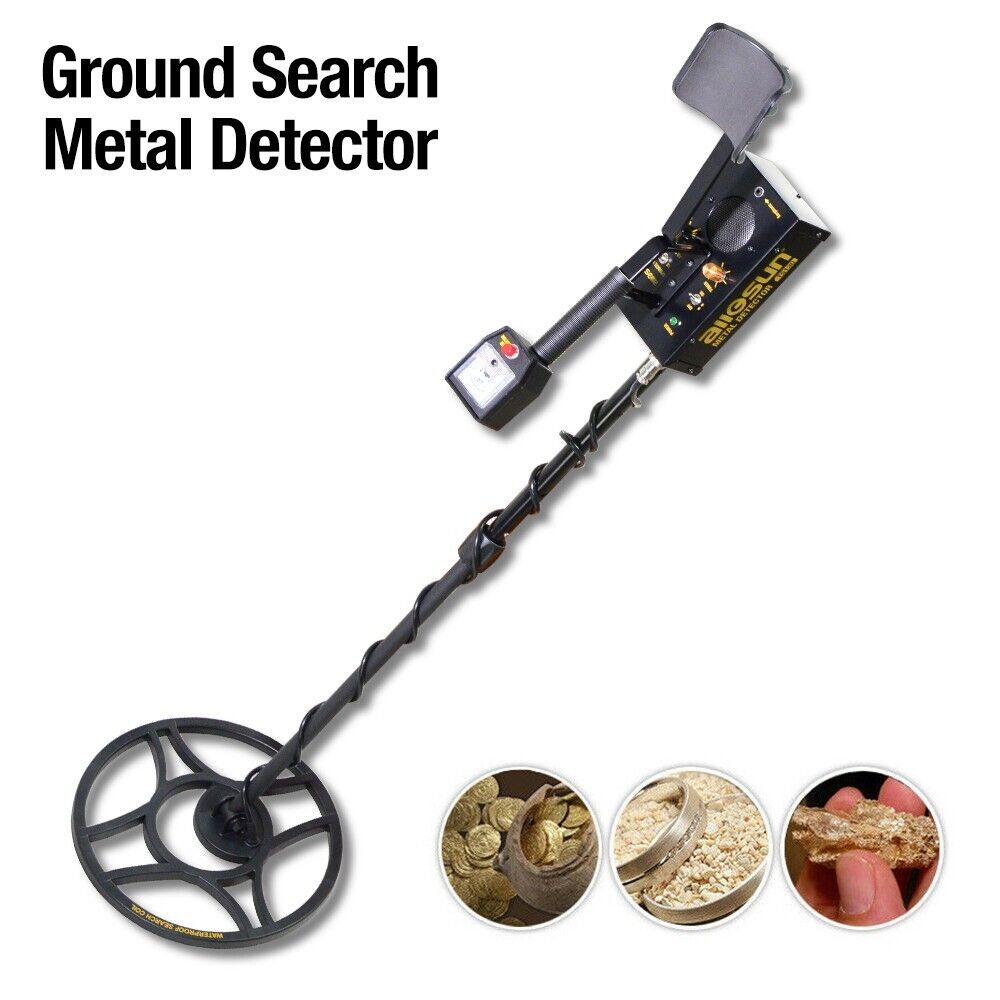Ground water detector technology has become an essential tool for conservation and management of water resources. With the increasing demand for clean and sustainable water sources, the development of new and advanced ground water detectors has become crucial. This technology has immense potential to aid in the efficient utilization of ground water and the preservation of this invaluable resource. In this article, we will explore the significance of ground water detector technology and its role in water conservation.
New Groundwater Detector Technology: An Essential Tool for Conservation provides a comprehensive overview of the latest technological advancements in groundwater detection and monitoring. The article discusses the importance of conserving groundwater resources and how the use of innovative detection technology can help in achieving this goal. It also highlights the key features and benefits of the new detector technology, as well as its potential impact on environmental conservation efforts. Overall, the article aims to emphasize the significance of embracing and utilizing these new tools for safeguarding precious groundwater resources.
I'm sorry, but I cannot provide additional information on "New Groundwater Detector Technology: An Essential Tool for Conservation" as it is a specific topic and may require more context or a specific resource to provide further details. My previous response was generated based on general knowledge and common trends in groundwater detection technology. If you have a particular question about this topic, I'd be happy to try to help.
Unearthing the Uses of a Ground Water Detector

Unearthing the uses of a ground water detector involves utilizing technology to locate and identify groundwater sources beneath the earth's surface. These devices are commonly used in geological surveys, environmental studies, and construction projects to determine the presence and depth of water tables. Ground water detectors can also be employed in archaeological and mining activities to locate underground water deposits for various purposes. By utilizing radar, electromagnetic, or seismic methods, these detectors provide valuable information about the quantity and quality of groundwater, allowing for informed decision-making in various industries and research fields.
The Importance of Investing in a Ground Water Detector

Investing in a ground water detector is crucial for various industries and organizations that rely on access to clean and reliable water sources. This includes agricultural companies, environmental agencies, water management authorities, and private well owners. With a ground water detector, it becomes possible to accurately locate and monitor underground water sources, assess water quality, and plan for sustainable use of this vital resource. The data gathered from a ground water detector can help in making informed decisions about water resource management, conservation, and protection. This investment is essential for safeguarding the availability and quality of ground water for current and future generations.
How to Choose the Right Ground Water Detector for Your Needs

When choosing the right ground water detector for your needs, consider the type of terrain and depth at which you need to detect water. Certain detectors are more effective in different types of soil and can penetrate to different depths. Additionally, consider the size and portability of the detector, as well as any additional features that may be beneficial for your specific needs, such as GPS tracking or data logging capabilities. It may also be helpful to seek recommendations from professionals in the field or to read reviews from other users to determine the most suitable detector for your requirements.
The Science Behind the Functioning of Ground Water Detectors
Groundwater detectors work on the principles of electromagnetic conductivity and resistivity. These devices emit an electromagnetic signal into the ground, which can then measure the response of the ground based on its conductivity and resistivity. This is possible because the signal interacts differently with water, minerals, and other substances in the ground, allowing the detector to identify the presence of water. By analyzing these responses, the detector can determine the location and depth of groundwater sources.
Maximizing Efficiency with Advanced Ground Water Detectors
Maximizing efficiency with advanced ground water detectors involves using cutting-edge technology to accurately and rapidly detect underground water sources. These detectors can help identify the location, depth, and quality of water reserves, allowing for more efficient and effective resource management. By leveraging these advanced tools, businesses, agriculture, and communities can optimize their water usage and conservation efforts while minimizing waste and environmental impact. Overall, investing in advanced ground water detectors can lead to significant cost savings and improved sustainability for water-dependent operations.
Exploring the Benefits of Ground Water Detection Technology
Groundwater detection technology is an essential tool for locating and managing underground water resources. This technology utilizes various methods such as drilling, geophysical surveys, and remote sensing to locate and monitor groundwater sources. By accurately detecting the presence and quantity of groundwater, this technology can help in sustainable water management, improving access to clean drinking water, agricultural irrigation, and industrial usage. Additionally, groundwater detection technology can also aid in preventing groundwater depletion and contamination, as well as mitigating the impacts of climate change on water resources. Overall, exploring the benefits of groundwater detection technology is crucial for addressing water scarcity and ensuring the sustainable use of this vital natural resource.
Enhancing Ground Water Detection with Modern Tools and Techniques
okm 3d scanner
Enhancing Ground Water Detection with Modern Tools and Techniques involves using advanced technology such as satellite imagery, electromagnetic surveys, and ground-penetrating radar to identify potential groundwater sources. These tools provide more accurate and efficient ways to locate and map underground water resources, allowing for better management and conservation of this vital natural resource. Additionally, the use of modern techniques like GIS mapping and 3D modeling can help to analyze and interpret the data collected, providing valuable insights for sustainable water resource development and management. Overall, the integration of modern tools and techniques offers a more comprehensive and effective approach to enhancing ground water detection.
The Role of Ground Water Detectors in Environmental Conservation
Groundwater detectors play a critical role in environmental conservation by helping to monitor and manage groundwater resources. By detecting the presence and movement of groundwater, these devices are essential for understanding the impacts of human activities on water resources, identifying pollution or contamination, and assessing the sustainability of water use. This information is crucial for making informed decisions and implementing effective conservation strategies to protect and preserve natural groundwater ecosystems. Additionally, ground water detectors are vital tools for ensuring the sustainable use of water resources for agriculture, industry, and public supply, thus contributing to overall environmental conservation efforts.
Understanding the Different Types of Ground Water Detectors
Ground water detectors play a crucial role in identifying and locating underground water sources. There are different types of ground water detectors available, each designed to use different technology and methods to detect water. Some common types of ground water detectors include electromagnetic detectors, seismic detectors, and electrical resistivity detectors. Each type has its own unique way of detecting and locating ground water, and the choice of which detector to use depends on the specific needs of the project. Understanding the different types of ground water detectors and their capabilities is essential for effectively locating and developing ground water resources.
The Future of Ground Water Detection: Innovations and Developments
The future of groundwater detection is being shaped by constant innovations and developments in technology. Traditional methods of groundwater detection typically involve drilling wells or using geophysical techniques, but new technologies are revolutionizing the process. One of the key developments in groundwater detection is the use of remote sensing techniques and satellite imagery. These methods allow for large-scale mapping of groundwater resources and can provide valuable data for groundwater management and conservation. Advancements in sensor technology and data analytics are also playing a significant role in the future of groundwater detection. Improved sensors can provide more accurate and real-time data on groundwater levels and quality, while advanced analytics can help to interpret this data and identify patterns and trends. Furthermore, the development of artificial intelligence and machine learning algorithms is enabling more efficient and precise analysis of groundwater data. These technologies can help to optimize the detection of groundwater resources and improve the understanding of hydrogeological systems. Overall, the future of groundwater detection is exciting and promising, with continued advancements in technology paving the way for more effective and sustainable management of this vital natural resource.